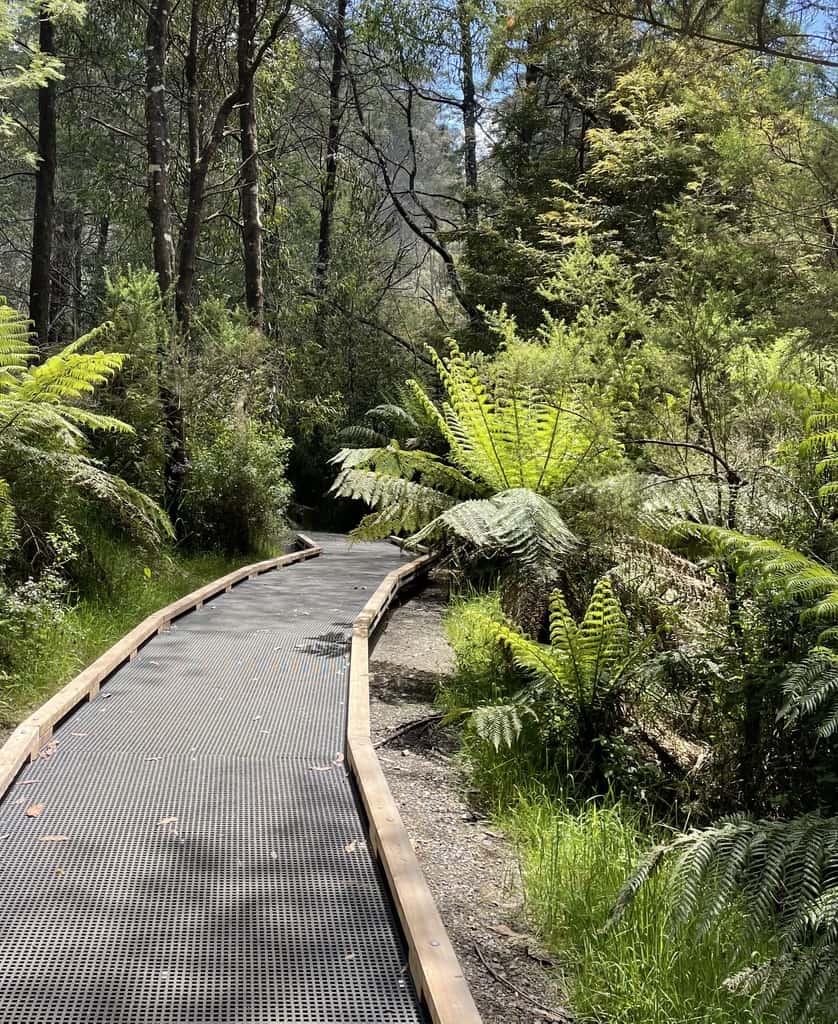Our Forests Our Future
-
Forest
-
Human Impacts



Excursion Program Overview
Forests are vital for our future. Explore the many values our forests provide and assess how they are managed to reduce human-induced change for future sustainability. As a part of the program’s emphasis on the impacts of climate change, students will perform fieldwork data collection activities related to the carbon sequestration capability of the Mountain Ash forest.
Inclusions and Notes
Equipment supplied by Gould League: Safety helmets worn by all participants; workbook and all tools required for fieldwork data collection.
Equipment needed: A chartered bus (which is required to remain with the group at all times). First aid kit , sun screen, insect repellent and PPE including hand sanitiser to ensure a Covid safe excursion.
Student needs to bring: Their own water and lunch, sunscreen, a clipboard, pencil, and a copy of the Gould League workbook (usually sent 14 days prior to excursion so copies can be made for students) to guide the forest investigation; bag to take away your rubbish.
Restrictions: This Gould League program is delivered in the Toolangi State Forest, in the North Central Fire District and does not operate on days with a Fire danger rating of Extreme and Catastrophic. On rare occasions, programs may be postponed due to extreme weather predictions involving wind/storms. In both cases, these programs will be rescheduled at the earliest convenience of both parties.
Programs however DO operate during wet/snowy weather. Please contact us to discuss the best timing to optimize your group’s experience and ensure suitable clothing and footwear for the conditions predicted. Plan for wet weather from April-October, and expect temperatures at least 5 degrees colder than suburban Melbourne.
Curriculum Links
GEOGRAPHY
Geographical Concepts and Skills: Data and Information
– Collect and record relevant geographical data and information, using ethical protocols, from reliable and useful primary and secondary sources (VCGGC130)
– Analyse and evaluate data, maps and other geographical information using digital and spatial technologies and Geographical Information Systems as appropriate, to develop identifications, descriptions, explanations and conclusions that use geographical terminology (VCGGC132)
Geographical Knowledge: Environmental Change and Management
– Environmental, economic and technological factors that influence environmental change and human responses to its management (VCGGK145)
– Causes and consequences of an environmental change, comparing examples from Australia and at least one other country (VCGGK147)
– Aboriginal and Torres Strait Islander peoples’ approaches to custodial responsibility and environmental management in different regions of Australia (VCGGK148)
– Application of environmental economic and social criteria in evaluating management responses to an environmental change, and the predicted outcomes and further consequences of management responses on the environment and places, comparing examples from Australia and at least one other country (VCGGK149)
ETHICAL CAPABILITY: Understanding Concepts
– Explore a range of ethical problems and examine the extent to which different positions are related to commonly held ethical concepts and principles, considering the influence of cultural norms, religion, world views and philosophical thought (VCECU020)
The Victorian Curriculum F-10 content elements are © VCAA, reproduced by permission. Victorian Curriculum F-10 elements accurate at time of publication. The VCAA does not endorse or make any warranties regarding this resource. The Victorian Curriculum F-10 and related content can be accessed directly at the VCAA website.
